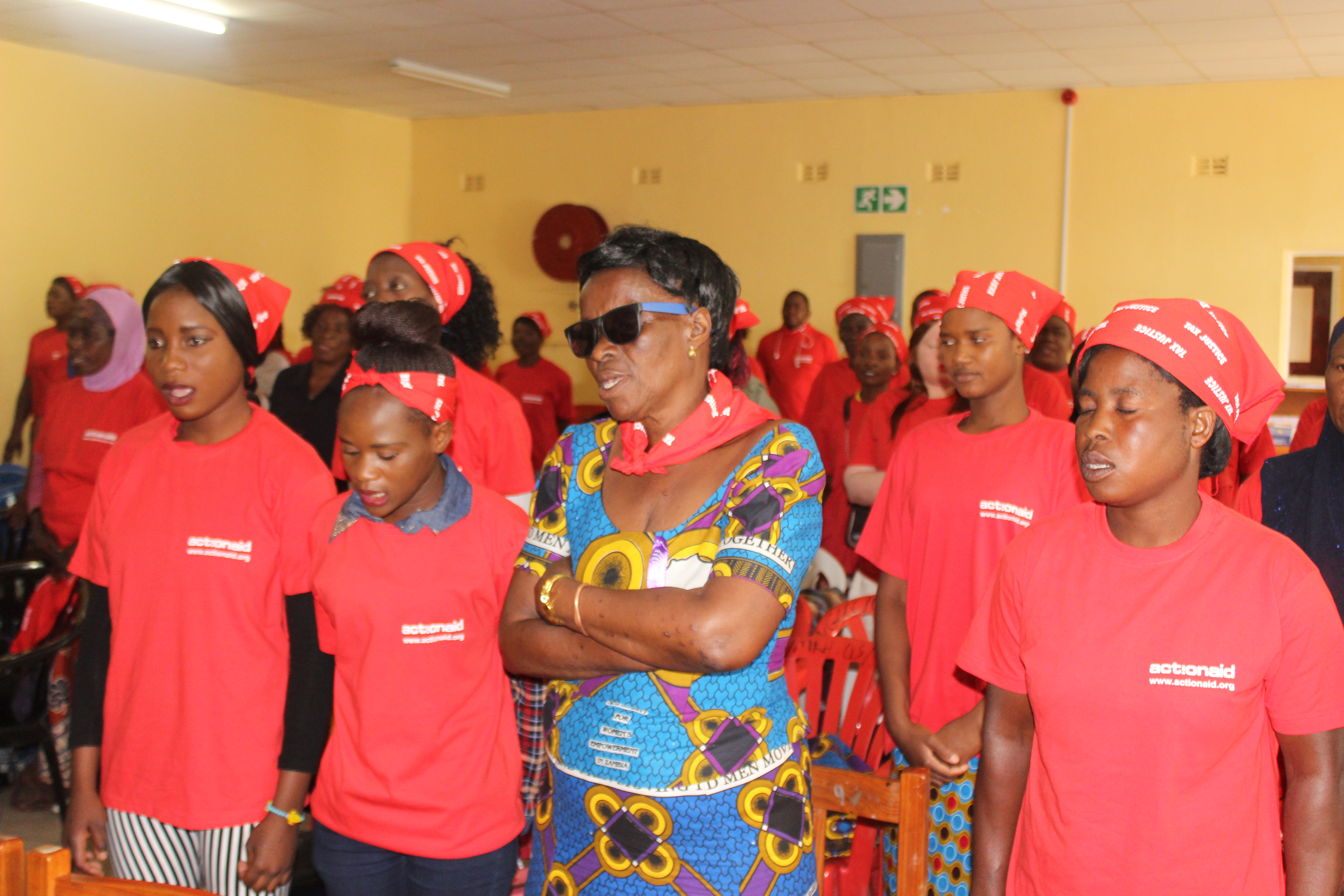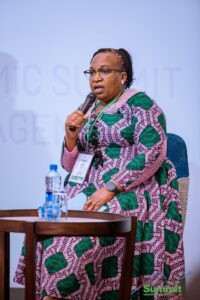Women In Politics Project Evaluation-Terms of Reference
TERMS OF REFERENCES FOR THE END OF PROJECT EVALUATION OF THE WOMEN IN POLITICS PROJECT
1.0 Background and Rationale
NGOCC was established in 1985 to play a leadership and critical role in the empowerment of women in Zambia. As a network organization, NGOCC’s mandate is to coordinate and mobilize members in a more concerted manner for advocacy and capacity building programs aimed at advancing the status of women in Zambia.
For many years, women’s participation in decision making, and in politics in particular, have remained very low. Over the years various organizations including the Non-Governmental Organizations’ Coordinating Council (NGOCC) have been advocating for the participation of women in decision making and politics at all levels.
2.0 Situation of Women in Zambia
Zambia is a signatory to the Convention on the Elimination of all forms of Discrimination Against Women (CEDAW). However, the participation of women in politics and generally in decision-making positions in Zambia, continues to be low. The concern of all stakeholders is that the number of women vying and elected for political positions and leadership, particularly at local Government as Councilors and at Parliamentary levels, remains low in comparison to those of the men folk. Currently, out of the 164 parliamentary seats, only 28 seats (17%), and a further 132 seats (9%) out of 1455 at Local Government level are held by women, of which 37 are Mayors and Council Chairperson out of which 9 are females. Zambia has failed to meet the African Union (AU) and SADC thresholds of 50 percent women’s participation in decision making positions.
Some of the contributing factors include negative attitudes and practices in political parties, in the media and among the general electorate, which largely discourage women from participating. The low socio-economic status of women has also been identified as one of the major hindrances to women’s participation in decision-making. It has been argued that due to discriminatory practices in access to education and training, women are both less educated and skilled. As such, women’s employment opportunities and chances to earn cash incomes have tremendously been compromised. In particular, women’s lack of skills inhibit them from occupying high positions in the formal sector, which would easily influence the course of their lives.
3.0 The WIPP Project
To address some of the issues above, NGOCC embarked on the Coordinated Women in Politics Project (WIPP) which sought to enhance joint collaboration and public engagement, to raise public awareness on the importance of voting for women in politics especially during the general elections on 11th August, 2016. Through this project, NGOCC aimed to heighten the participation of its member organizations and other stakeholder for concerted efforts in order to realize the objectives.
3.1 Coverage
The program was implemented in five (5) provinces at National, provincial, district and community levels where the identified stakeholders are based. These were Central, Copperbelt, Northern, Eastern and Southern provinces.
The WIP Project was contributing to NGOCC Strategic Objective number two (2) which reads, “By the end of 2017, national programs of the Republic of Zambia are more gender sensitive and responsive,” and Strategic objective number 4 which reads”: By the end of 2017, the Zambian media landscape contains the voices of women.
3.2 Objectives
The main objective of the WIPP was to promote multi-sectoral and coordinated strategies to increase women’s participation in decision making during the 2016 Tripartite Elections
Specific objectives
- By the end of 2017, CSOs promoting women in politics have been coordinated effectively.
- By the end 2017, capacities of women aspirants in public speaking and campaign skills at parliamentary and local levels have been built
- By the end of 2017, a critical mass of CSOs and other like-minded stakeholders mobilised to carry out campaigns on the importance of voting for women in politics
- By the end of 2017, public awareness on the importance of voting for women raised
3.3 Main activities implemented under the WIPP
Activity implementation commenced in January 2016 with two Women’s Development Dialogues being held in the two Provinces of Northern and Copperbelt. In the remaining three Provinces the WDDs had already been conducted in October to December of 2015. The project targeted participants from 5 districts in each of the provinces.
Following the WDDS, engagement meetings were held with political parties, men and boys, religious and traditional leaders in all the 5 Provinces after which, voter and civic education workshops were held targeting mainly the youth in the five provinces. Campaign materials, such as Tee Shirts, posters and brochures urging people to vote for female candidates at all levels were produced and distributed in all the five provinces. In addition, road shows were held promoting the song specifically produced to support women aspiring candidates.
Recognising the important role of the media in campaigns and elections, two media forums were held for senior editors of community radio stations ibn the five provinces and in Lusaka. It was expected that the forums would help create appreciation for the need to have positive and favorable coverage of female aspirants in the media. The increase in the number of stories and articles on female aspirants would then increase the voices of women in the media, ultimately leading to more women being elected into political office.
5.0: The WIPP End of Project Evaluation
As per contractual requirement and as good practice, determination of results for any intervention is very important to provide lessons learnt which would then inform subsequent interventions for better impact. This evaluation is being undertaken as an integral part and a planned activity under the Project.
After one and half year of implementation, it is imperative that an evaluation is conducted on the WIPP which assessment will focus on determining the results of the project. Even though the project implementation period was only one and half year, it was felt that there was need to determine its contribution on the overall women in politics agenda as a coordinated approach. The evaluation will also endeavor to highlight what worked, what didn’t and overall experience in the coordinated approach. This would then inform subsequent strategies by the larger women’s movement in targeting future elections and the participation of women.
5.1Purpose/Overall Objective of the End of the Project Evaluation
The Coordinated Women in Politics Project comes to an end in June 2017. The overall objective of the End of Term evaluation is: to assess the progress made towards the achievements (impact, effectiveness, efficiency, replicability, reliability, relevance and sustainability) of the interventions in relation to the indicators.
5.2: Specific Objectives of the End of Term Evaluation
- Provide an in-depth assessment of the impact and relevance of the project in the context of increasing the number of women Councilors and Members of Parliament.
- To assess the impact of the WIPP’s interventions on female aspiring candidates’ capacities to participate effectively in the 2016 General Elections.
- To assess the extent to which Member Organizations were coordinated to carry out the project activities effectively and efficiently.
- Identify successes and failures as entry points to inform the development of the next phase of support to women aspiring candidates in preparation for the 2021 General Elections.
- Examine the structure and management of the coordinated approach under the Women in Politics Project and determine how effective the implementation of the project was.
5.3: The coverage of the Evaluation
The evaluation will cover five provinces which include the Central, Copperbelt, Eastern, Southern and Northern
6.0 Applying Organizations/Consultant’s Contact Details
|
Name of Organisation/Consultant |
|
|
|
|
|
|
|
|
|
|
|
|
|
|
|
|
|
|
Name of contact person
|
|
|
|
Email of contact/Email
|
|
7.0 Brief on the Organisation/Consultant
7.1 Summary/Description
[Provide a summary description of your Organization indicating year of establishment / registration, main mission or purpose, your Organization’s role in research and development, current activities, and recent achievements – maximum 3 pages)
7.2. Staffing levels [Key management positions held in the organization or in the case of Consultants, position/role of each team member) and their qualifications and experiences related to the proposed work (Max 1.5 Pages)].
7.3. How your organization/Consultant/group of Consultants meet the requirements of the consultancy
7.3.1. [Describe how your Organization/how you as a Consultant/group of Consultants propose to undertake the work (Max 3 pages)].
7.3.2 [Methodological approach to data collection (Max 3 pages)].
The proposed methodology regarding data collection and the subsequent qualitative and quantitative data analysis should be systematically outlined. The types of research tools to be used for data collection should be clearly stated, including the advantages/disadvantages and how you can mitigate any challenges to ensure the quality of the data.
8.0 Capacity and Track record
[List the typical research/activities you have undertaken in the last three years that demonstrate your organization’s/each team member’s (in the case of Consultants) experience in conducting evaluations of programs and or Organizations Strategic Plans and what has been achieved.] – (Max 3 pages)
NB: Remember to attach photo copies of contracts you have been awarded so far. (Attach as appendices).
9.0 Curricula vitae (CVs)
Curricula vitae (CVs) of the experts designated for the project. The CVs should cover the following points in the given order:
Name, sex, date of birth, nationality, professional training / higher education, knowledge of Zambian local languages (e.g. Nyanja, Bemba, etc.), professional experience specifying the employer, duration of employment, scope of duties and periods of employment, management experience and scope, particular professional skills as well as publications by the candidates if applicable.
10.0 Tasks/Scope of Work
The Organization/Consultants will be required to undertake the following tasks;
|
1. |
Develop the End of Term evaluation study-Inception Report with (Methodology: agree on sample size; development of research tools for data collection; and analysis (the data collection tools to be used should take take into account of education levels of the participants) and subsequent presentation to NGOCC |
|
2. |
Desk review of existing data and information on relevant national and NGOCC documents such as the WIPP Project Document, NGOCC Analysis Report and Position papers on the elections, Electoral Commission of Zambia Reports on results of the 2016 General Election, NGOCC Strategic Plan, NGOCC Annual report 2016, MOs reports, Annual plans, Monitoring visitation reports etc |
|
3. |
Data collection in the five provinces |
|
4. |
Analysis of the collected data |
|
5. |
Submission and presentation of Draft End of Term Evaluation Report to NGOCC |
|
6. |
Revision and inclusion of comments/feedback into the Report |
|
7. |
Submission of Final End of Term Evaluation Report to NGOCC |
11.0 Consultancy Deliverables/Output
The consultant is requested to produce a report in relation to the status quo of the above stated objective of the End of Term evaluation.
- Inception Report and well-designed tools/ questionnaires to capture data among the target groups/staff, MOs which should be designed by 10thApril 2017.
- The Organisation/Consultant is requested to provide the raw data i.e the filled-out questionnaires and interview records as well as the data record by 17thMay, 2017.
- The Draft Report is to be submitted to the Executive Director-NGOCC by the Organisation/Consultant not later than 21stJune, 2017.
- Validation meeting on the findings of the Evaluation with key stakeholders by 25th June 2017
- The Final Report has to be submitted by 30th June, 2017. Two hard copies and electronic copies (CD) of the Final Report have to be handed over to the Executive Director-NGOCC that outlines the required quantitative and qualitative data in a clear and structured manner, including the analysis and interpretation of results.
- Final Report should have clear and comprehensive findings, and informed recommendations which can be used to redesign strategies and refocus efforts to enhance the participation of women in politics.
12.0 Organisation and time frame
The Consultancy Team shall be supported by the WIPP Coordinator and the Steering Committee throughout the process of conducting the End of Term Evaluation. NOTE THAT CONSULTANT(S) SHOULD DEVELOP A CLEAR WORK PLAN.
Summary of tasks and expert days
|
Task |
Deadline |
Expert days |
|
Consultative meeting with NGOCC WIPP Coordinator and Steering Committee |
1st April |
1 |
|
Submission of Inception Report |
5thApril |
2 |
|
Submission of first draft questionnaires/tools |
10thApril |
5 |
|
Presentation of final questionnaire (after incorporating of comments) to NGOCC |
16th April |
4 |
|
Data collection in selected provinces |
24th April |
15 |
|
Data analysis and report preparation |
15th May |
5 |
|
Draft Report presentation |
22ndMay |
1 |
|
Facilitate Validation Meeting with key stakeholders |
24th May |
1 |
|
Incorporating the feedback from NGOCC |
28th May |
1 |
|
Presentation of Final Report / Total expert days |
30thMay |
35 days |
13.0 Budget (Fees and Cost Estimates)
The Organisation/Consultant must provide a detailed technical and financial proposal based on the Terms of Reference. (This is a draft budget and should be clear and simple). It is important to assign specific responsibilities to all expertise to be involved and their costs
14.0 Requirements for Organisation/Consultancy Team
The consultants should have the following expertise:-
- The experts must have; especially the Lead Consultant, a Minimum qualification of Masters’ Degree in Political studies, Statistics, Demography, Social Sciences, Development Studies, Gender and Development, M&E and/or related subjects;
- Knowledge in ascertaining the utilization of financial, personnel and other resources;
- Have profound knowledge of the current gender and development issues in Zambia;
- Have significant experience in undertaking Evaluations of organisations’ Projects. Exposure to program/project evaluations and rapid assessments is a PLUS;
- Expertise in Organizational Development processes
- Have significant experience in collecting and analysing qualitative and quantitative data;
- Possess proven evidence of producing high quality assessment or evaluation reports within tight time frames.
- Experience with evaluation of membership organizations will be an added advantage
- Knowledge and the understanding of women’s movement in Zambia will be an added advantage but it is NOT a prerequisite;
- At least one team member of Consultant (s) should have strong background in Financial Management
DEADLINE : 24 MARCH, 2016 (17:OOHRS). NO LATE SUBMISSIONS WILL BE ACCEPTED.
Address the submissions to: The Executive Director
Non Governmental Organisation Coordinating Council (NGOCC)
Plot # 5168, Nchoncho & Chishango Roads, Light Industrial Area,
P.O Box 37879 Lusaka, Zambia
Submit Two (2) Bound Copies.





